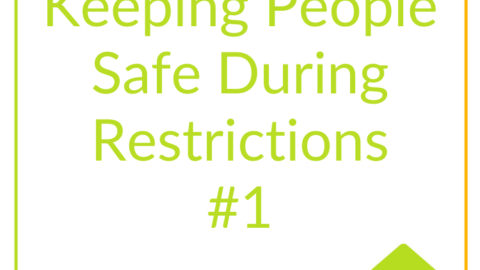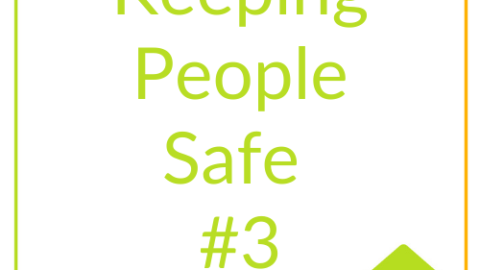There are things you can do to keep people safe during restrictions, even though it may not be possible to enter their homes. This is the second video in our series of Keeping People Safe During Restrictions. Please take the time to watch this 3-minute video and have an important conversation with someone you’re concerned about.
If you’d like to know more practical strategies to keep people safe in their homes, take a look at our online training.
TRANSCRIPT:
Angela: Are you concerned about someone who hoards but feel like your hands are tied because of Covid restrictions? I’m Angela Esnouf.
Wendy: And I’m Wendy Hanes, and this is our second video blog in a series about how to keep someone safe even if you can’t get into their home.
In our first video we talked about ensuring smoke alarms are working. Now we are going to our attention to another way of reducing risk.
Angela: A significant hazard is blocked exits. By unblocking exits and widening internal pathways it is easier for occupants to get out and rescue services to get in if a fire breaks out. It also reduces the risk of tripping. We are aware that during Covid, some people, particularly those with heightened anxiety or contamination fears have allowed rubbish to build in hallways and around doors. Things are ready to go but they haven’t taken that last step of removing items to the bin.
Wendy: If we can’t be there in person to lend a hand, what can we do?
You might simply pick up the phone and ask. You can be as direct or covert as your relationship allows. A direct question might be “Are you comfortable taking out the rubbish at the moment?”
If things have been building up, you can brainstorm ways of taking that important next step of getting the bags out of the house. For example, one of my clients has serious contamination fears and bin night causes high anxiety. He finds it helpful if I send him a gentle or fun reminder text on bin night to keep him accountable and motivated. He texts me back when the job is done. He appreciates that someone cares and that gives him the courage to face the task.
Angela: Someone else might become oblivious to taking the rubbish out. In this instance you can use habit stacking – that is the technique of tying a new habit to an existing activity. For example, if a person goes to the local shops every second day, they can stack the habit of taking the rubbish out at the same time.
Think about how you might broach this important topic with someone you are concerned about.
This is another simple way you can help keep people safe even during restrictions.



